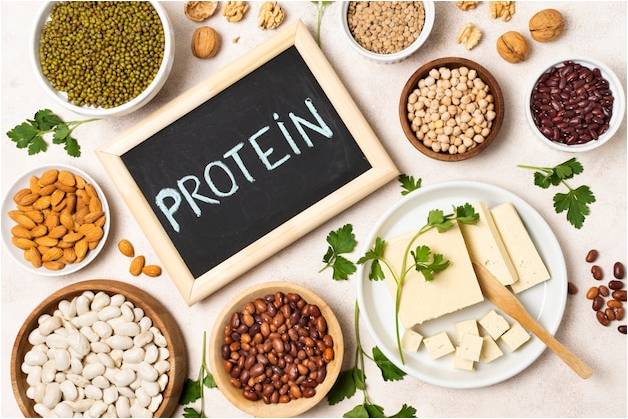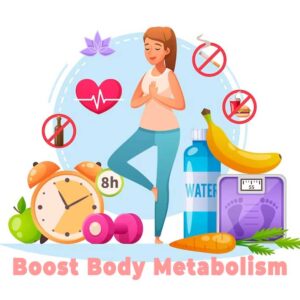
Protein is an essential nutrient that plays a crucial role in various bodily functions, including muscle repair, hormone production, and immune support. While whey protein powder supplements are readily available, many individuals prefer obtaining their protein from natural food sources. In this blog, we will explore the benefits of fulfilling protein requirements through whole foods such as eggs, beans, milk, fish, and more, rather than relying on whey protein powder supplements.
The Importance of Protein:
a. Building Blocks: Proteins are composed of amino acids, which serve as the building blocks for our body’s tissues, organs, and muscles.
b. Satiety and Weight Management: Protein-rich foods help promote feelings of fullness and can aid in weight management by reducing cravings and increasing satiety.
c. Nutrient Profile: Whole food sources of protein often come with additional nutrients like vitamins, minerals, and fiber, offering a more well-rounded nutritional profile.
Natural Protein Sources:
a. Eggs: Eggs are a nutrient-dense protein source, providing essential amino acids, vitamins, and minerals.
b. Beans and Legumes: Beans, lentils, and chickpeas offer a plant-based protein option with the added benefits of fiber and antioxidants.
c. Milk and Dairy Products: Milk, cottage cheese, and Greek yogurt are rich in protein and also provide calcium and other essential nutrients.
d. Fish and Seafood: Fish like salmon and sardines are excellent sources of high-quality protein and omega-3 fatty acids.
e. Nuts and Seeds: Almonds, peanuts, chia seeds, and pumpkin seeds are protein-rich options that also offer healthy fats and micronutrients.
f. Tofu, Tempeh, and Edamame: These soy-based products provide a complete protein source for vegetarians and vegans.
g. Poultry, Meat, and Fish: Chicken breast, beef, and salmon are animal-based protein sources that provide essential amino acids.
h. Quinoa: Quinoa is a versatile grain that contains all nine essential amino acids, making it a complete protein source.
i. Yogurt: Greek yogurt is a protein-packed dairy option that also contains probiotics for gut health.
The Benefits of Whole Foods over Whey Protein Powder:
a. Nutrient Diversity: Whole foods offer a wide array of nutrients beyond protein, contributing to overall health and well-being.
b. Fiber Content: Whole food sources often contain fiber, which aids in digestion, promotes satiety, and supports a healthy gut.
c. Sustained Energy: Whole foods provide a more balanced release of energy due to their complex nutrient composition, whereas protein powder may lead to rapid digestion and energy spikes.
d. Sustainable and Environmentally Friendly: Choosing whole foods reduces reliance on processed supplements, promoting sustainable and eco-friendly practices.
Quotes and Citations:
a. “Whole foods provide a myriad of health benefits beyond protein content, including vitamins, minerals, and fiber.” – Academy of Nutrition and Dietetics
b. “A balanced diet with a variety of protein sources from whole foods is the foundation for optimal nutrition.” – Harvard T.H. Chan School of Public Health
References:
a. Academy of Nutrition and Dietetics. (n.d.). The Power of Protein. Retrieved from https://www.eatright.org/food/vitamins-and-supplements/nutrient-rich-foods/the-power-of-protein
b. Harvard T.H. Chan School of Public Health. (2021). Protein. Retrieved from https://www.hsph.harvard.edu/nutritionsource/what-should-you-eat/protein/
Conclusion:
Fulfilling protein requirements through natural food sources offers numerous advantages over relying solely on whey protein powder supplements. Whole foods such as eggs, beans, milk, fish, and nuts provide not only protein but also a wide range of nutrients, fiber, and additional health benefits. Choosing whole foods allows for a more balanced and sustainable approach to nutrition while promoting overall well-being. Embrace the rich variety of natural protein sources available and reap the rewards of nourishing your body through wholesome, delicious meals.
Disclaimer: The information provided in this blog is for educational purposes only. It is not a substitute for professional medical advice or treatment. Individuals should consult healthcare professionals for personalized guidance related to their specific dietary needs and health conditions.
















